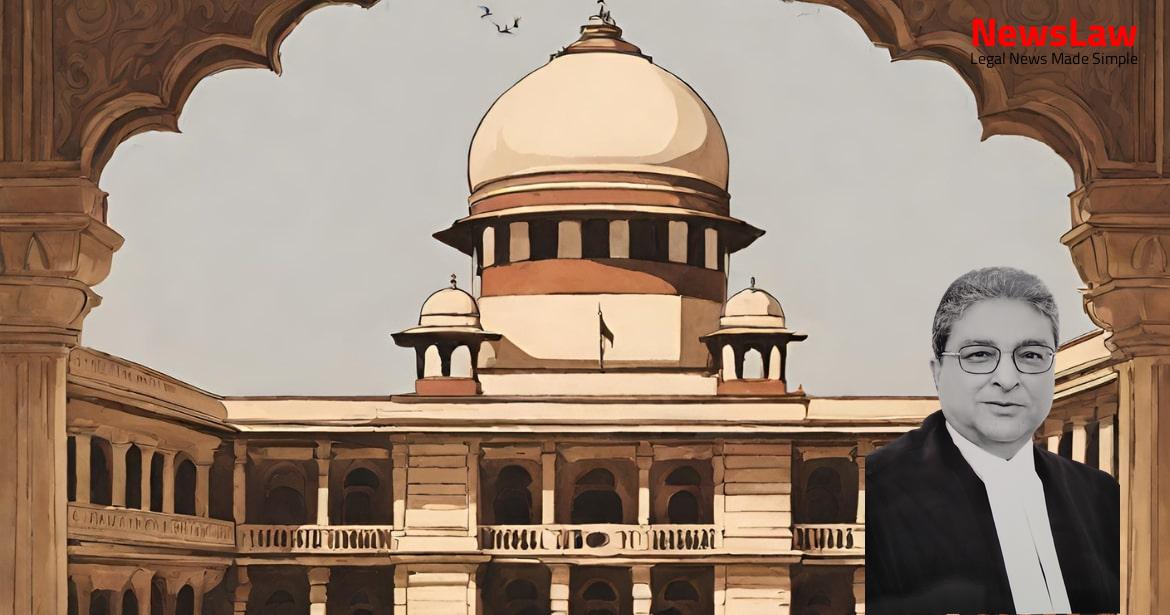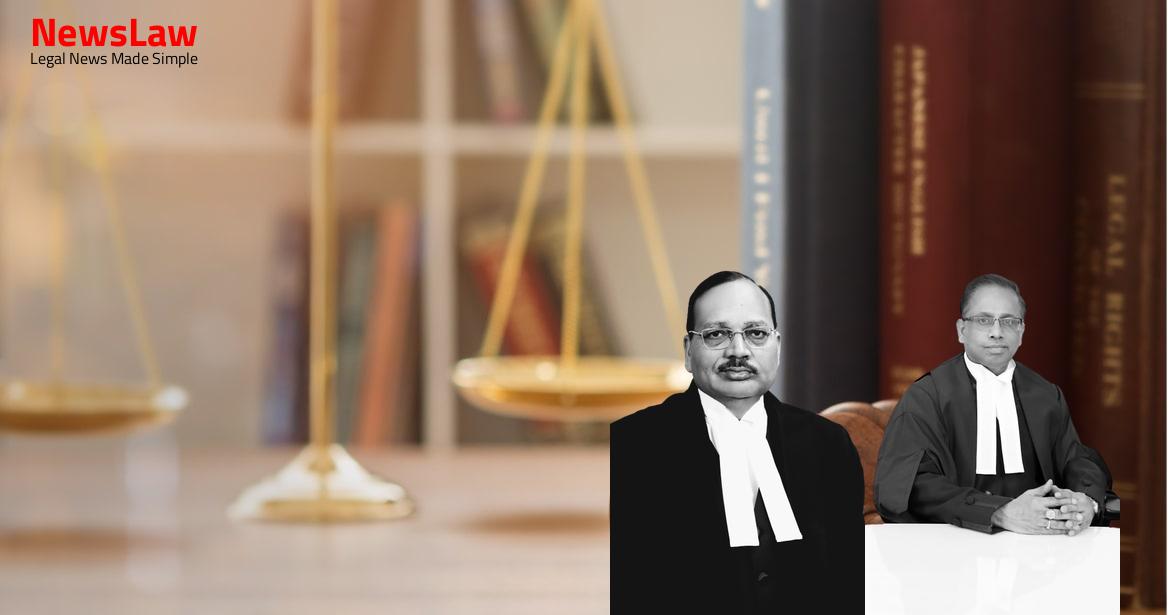In a significant legal battle, the Supreme Court of India has issued a ruling in the case concerning the appointment in CISF. The decision, which impacts the future of the respondent, marks a crucial moment in the realm of juvenile justice and employment rights. The judgment upholds principles of fairness and reintegration, setting a precedent for similar cases in the future. Stay updated on the latest developments in this case.
Facts
- The respondent had disclosed all necessary information regarding the criminal case lodged against him in the past.
- The Standing Screening Committee found the respondent unsuitable for appointment in CISF due to a criminal case being lodged against him.
- The National Industrial Security Academy cancelled the respondent’s appointment on 03.06.2017 based on the criminal case registration.
- The respondent challenged the cancellation and filed Writ Petition No.7522 of 2017, which was allowed by a Single Judge directing a reevaluation within 15 days.
- The respondent was acquitted on 24.11.2011 as there was no evidence against him.
- The Division Bench dismissed the appellant’s challenge to the Single Judge’s order on 08.05.2018.
- The respondent filed Writ Petition No.1310 of 2018, resulting in the order dated 08.03.2018 directing activation of the offer of appointment as Sub-Inspector in CISF.
- The decision pertains to denial of appointment based on a past criminal case against the respondent.
- The respondent was selected for the position of Sub-Inspector after appearing in written examination and physical endurance test.
- Standing Screening Committee re-examined the respondent’s case on 02.01.2018.
- Committee rejected the claim, stating the respondent was acquitted due to lack of evidence and compromise.
- The offence in the charge sheet was classified as a serious offence.
- Respondent was deemed unsuitable for the position of Sub-Inspector in CISF.
Also Read: High Court’s Legal Analysis in Guarantor Protection Case
Analysis
- The respondent was a minor when the charges were framed against him for offences under Sections 354, 447, and 509 of IPC.
- The charges were never proved as the girl and her parents did not depose against the respondent, leading to his acquittal.
- The Juvenile Justice system aims to reintegrate juveniles back into society without stigma, with a principle of a fresh start and erasure of past records, except in special circumstances.
- The Juvenile Justice (Care and Protection of Children) Act, 2000 and 2015 emphasize the obliteration of juvenile convictions to prevent any stigma related to crimes committed as juveniles.
- The girl and her parents decided to pardon the respondent by not providing evidence, ultimately resulting in his acquittal.
- Section 3 of the Juvenile Justice (Care and Protection of Children) Act, 2015 provides guidelines for implementing the provisions of the Act.
- The legislation ensures that juveniles, even if convicted, should not face job discrimination based on past juvenile offenses.
- The respondent cannot be held against for getting a job even if he had been convicted, as he was a minor during the alleged offences and charges were framed against him.
- Exception of special circumstances does not apply in this case as per Section 3(xiv).
- The case is not about suppression of any conviction or charges against the respondent.
- The respondent disclosed the charges framed against him and his acquittal due to lack of evidence from the complainant.
- The disclosure by the respondent does not constitute suppression that could deprive him of the job he was selected for following due process.
Also Read: Legal Analysis of Eviction Notice Requirement in Rent Control Act Case
Decision
- No ground found for interference with the orders passed by the learned Single Judge and Division bench of the High Court of Rajasthan at Jodhpur.
- The appeal is dismissed.
- Original Names shall be entitled to all benefits of the judgment of the writ Court within 30 days.
- No orders as to cost.
Also Read: Legal Analysis of Arbitration Award Enforcement
Case Title: UNION OF INDIA Vs. RAMESH BISHNOI
Case Number: C.A. No.-009109-009109 / 2019



